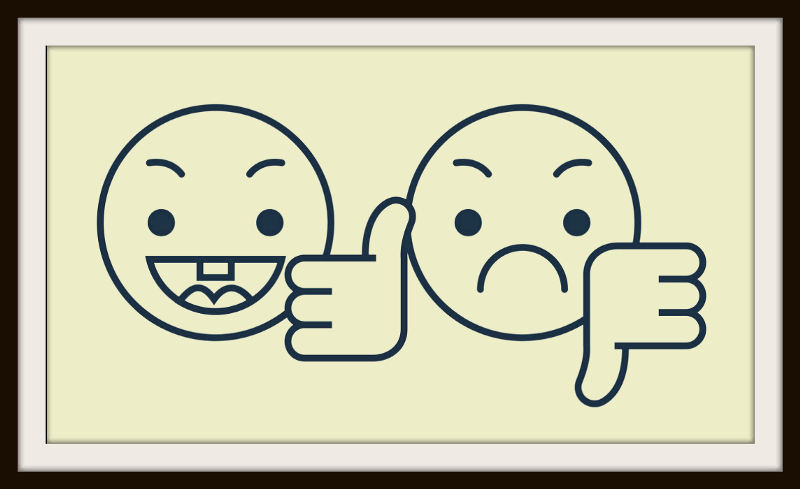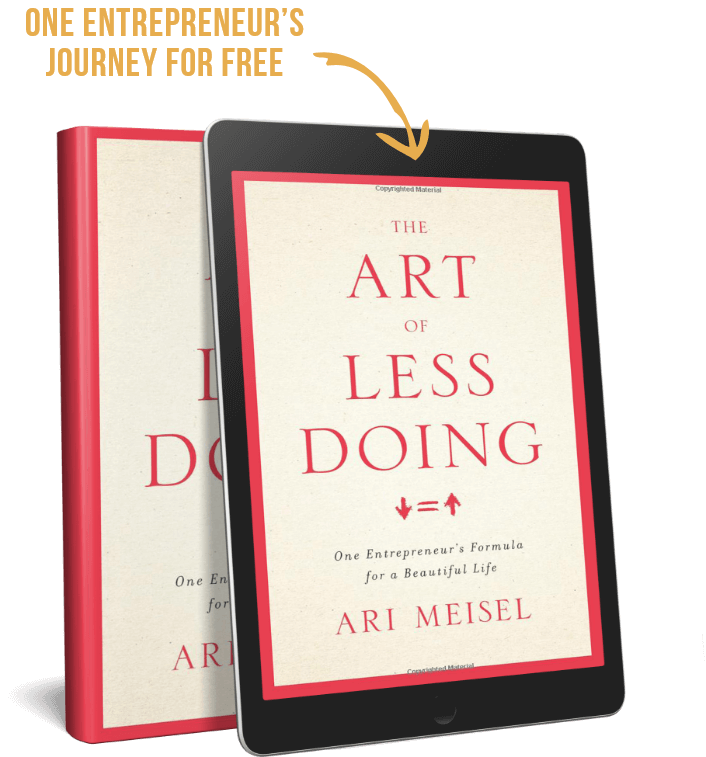I came across this article the other day. “22 Power Routines that will Boost your Productivity.” Well, that got my attention. And away we go…
1. Wake up when it’s right for you.
I think we can train ourselves to do pretty much anything, and yes, some of us are not morning people, some of us have different circadian rhythms. But you can hack your wake up time by picking a time to go to sleep. The easiest way to do that is you take the average number of REM cycles, which for most people is about 90 minutes and add those up.
The average person takes 14 minutes to fall asleep. So if you get four cycles, that’s six hours plus 14 minutes. So you want to go to sleep, six hours and 14 minutes before you want to wake up. While that sounds very nitpicky or trivial, it actually does work.
It’s also not reasonable. If I’m really motivated, I’ll wake up at 5:00 AM and I’ll start doing things. Otherwise I’m gonna wake up when a kid wakes me up. I don’t really have a morning routine because I have my kids. Now people with kids certainly can have morning routines, but I think that it makes it significantly more difficult.
2. Stay away from your phone when you first wake up.
No. No. No. No. It’s akin to the idea that if you’re an alcoholic and you lock up your liquor, you’ll stop drinking. It doesn’t solve the problem. Preventing ourselves from looking at our phones doesn’t necessarily fix anything. I believe that if you’re in control of your communications and you know what you’re doing and you have a good system set up, there’s no reason why you shouldn’t or wouldn’t want to look at your phone first thing in the morning.
I look at it first thing and it takes me about a minute and a half, two minutes to catch up on anything that might’ve come in overnight, maybe a couple of emails, maybe a couple of Slack messages if that, and that’s it.
3. Eat breakfast.
Don’t agree with that one either. I have been doing intermittent fasting for the past four months now. I’ve lost 13 pounds. I’ve had significant increases in my cognitive functioning. I’m not snacking or eating all day. My first meal is typically around 11 o’clock or 12. So one thing is you could say that breakfast is just your first meal of the day and you want to make that really great, but I don’t think that you have to eat breakfast to get your day going.
4. Move Your Body
I think that it’s a good idea to get your body moving. But that can mean different things to different people. That could mean a good little five-minute yoga stretch when you get out of bed. It could mean doing 10 pushups and 10 jumping jacks when you get out of bed in the morning. Movement gets things going and it helps shake off the nighttime heaviness,
5. Meditation and Stillness
I do agree with this one. I don’t necessarily agree that you have to meditate. I’m not saying that you shouldn’t meditate. What I’m saying is that you don’t have to do traditional meditation for this to be effective. Stillness I think is more interesting. On those mornings when I wake up early, like 5:00 AM, I will definitely spend five or 10 minutes just sitting with my own thoughts, not looking at my phone, not doing anything else and just sitting. It’s very, very difficult for most people, myself included.
“All of humanity’s problems stem from man’s inability to sit quietly in a room alone.”
― Blaise Pascal, Pensées
6. Make your bed.
I think that making your bed is the key to a good morning. It sets you up for the day and there’s nothing better than getting into a made bed in the evening.
7. Recite affirmations.
I would love to tell you that if you stood in the morning in the mirror every morning and said, “Hey, I’m going to be so productive today.” “You are a productive person.”, ou would magically become more productive. I know that there’s research that shows that it works, but I don’t think that they’re quite as exacting or linear. It can’t hurt, but It’s not a guarantee. Productivity takes action, not just affirmations.
8. Get Your Brain Going
This is the movement version of your brain. I usually read one of two newsletters that come in in the morning; Morning Brew and Next Draft. I get a quick overview of what’s coming up in terms of the world and politics and news. Both help me think about something outside of myself.
9. Schedule your time.
So this is a very personal choice, but I think scheduling your time is something that should be done at night. In fact, it should happen on Sunday night. You should be looking at both the week ahead and the day ahead. One of the goals that you should have is to CANCEL at least one thing that you have planned for that week. Saying no more is a good habit to get into. Don’t do it rudely or superficially, have a good reason, but pick something on your calendar that just doesn’t need to be there and cancel it. I think that doing it in the morning is not as efficient and effective as doing it at night. I think it gives you more time to really digest what you’re gonna be doing the next day.
10. Pare down your decisions.
I live and die by the calendar. If it’s not in the calendar, it’s not happening. Reduce the number of things upon which you decide. And as always, implement the three DS that we teach here at Less Doing. Do. Delete. Defer.
11. Dress for Success.
I think that dressing for comfort is far more important. Of course, it depends on what you’re doing, but generally, dress for the mode that you want to be in is going to drastically improve your productivity. Dressing in a suit is not going to make you more productive. Dressing in something that hinders your ability to get things done is pretty counterproductive.
12. Put pen to paper.
There is a lot of really great research that says that putting a pen to paper is neurologically more effective. It’s all about strengthening the connection between our brains and our hands. My handwriting is terrible. I think I should work on this.
13. Eat that damn frog.
They say, “eat the frog.” In other words, do the most difficult thing first and everything else gets easier. Wrong. The difficult thing may not match up with the timing of your day. Let’s say the most difficult thing of your day may be writing a blog post. But let’s say your writing time is best done between 2:00 and 4:00 PM. So if you try to do it first thing in the morning, you’re not going to be able to be as effective at it. What you should be doing first thing in the morning is getting rid of the thing which is slowing you down the most. Identify the places where you are a bottleneck in your business or in a task where you’re holding other people up That should be your number one priority, not the hardest thing.
14. Focus on yourself.
If you don’t schedule your time, your time will be scheduled for you. So you do need to make time for yourself. Pretty much, 80% of your time should be spent on active recovery and 20% should be spent on work. So you work super effectively in that smaller amount of time, the rest of the time is spent on rest, recovery, learning, and improvement. It’s active recovery, not in the athletic sense, but in the sense of doing things that really enrich you, spending time with your family, or working on a hobby.
15. Practice Gratitude.
Practicing gratitude and being more cognizant of the things that are happening in our lives affects everything. Oftentimes as human beings we tend to focus on the negative and we don’t even recognize the positive.
16. Celebrate
We need to celebrate our successes and socialize with our teammates. There’s actually some really interesting research that shows that virtual teams are more socialized than non-virtual teams because they make more of an effort. It’s like when you never see those friends that live right next door, but you see the friends that live out of town more often.
17.Set hard time limits on certain activities.
Yes, 100%. If you set artificially restrictive limits on yourself, you will get more done. It’s quite simply the way it will work. Parkinson’s law says that work expands to fill the time allotted to complete it. Give yourself less time to complete things.
There was this great study done on the finishing times of marathons. It took the finishing times of over a million people. What they found was that there was a huge uptick every half hour, because everyone wanted to get in under that time marker. It just shows you the arbitrary nature of most goals that we set. We can set any goals that we want so we might as well set more restrictive ones.
18. Organize your workspace.
Having an organized workspace is really important. Your environment plays a big role in how productive you’re going to be. So organize it for the work you need to do and keep in mind anything that we make 20 seconds more difficult to do will be easier to break up a habit. So if you want to drink more water, have more water at your workstation, if you don’t want to eat junk food, don’t have junk food in your house, organize your workspace,
19. Leave work at work.
This one is a little bit more difficult for entrepreneurs particularly, and also those who work remotely or work at home. It’s a little bit hard sometimes to have that separation and compartmentalize. It helps to have your environment set up for work only. So I wouldn’t recommend that you sometimes do work in the kitchen and sometimes do work in the dining room. You want to have one place where you do at least the same kind of work. Maybe you always write in one place and you always read one place. What this compartmentalization does is create a signal for your brain that this is the place where you’re doing that kind of work. It will make it a lot easier to switch activities.
20. Check-in with a coach or mentor.
This may sound self-serving. I am a coach. Still, accountability is often best done outside of ourselves. Checking in with a coach or mentor takes the thoughts out of your head and allows someone with experience to help.
21.Reflect on the day’s achievements.
We don’t put enough importance on the good things that we get done. And there’s this great tool called [inaudible] this, which sends you an email at the end of the day and it says, what’d you get done today? And you write back and it creates a journal from it. And oftentimes when I would get that at six o’clock at night, I would have to look at my calendar for the day to figure out and remember the things that I had done over the past eight or nine hours because there’s just so much happening and it’s so easy again, for us to focus on the negative that sometimes we really need to celebrate those successes.
22. Disengage.
At some point in the day, you need to “close the kitchen”. Like right now. I’ve been writing for a long time. I can feel my productivity waning. So I’m going to disengage.
Make it an effective day!




